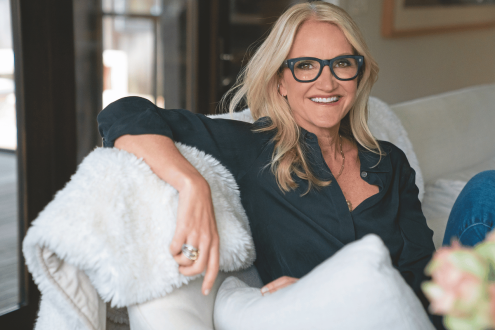Eco anxiety: how to cope and find hope
Therapists report a surge in cases of eco anxiety – but how do we deal with a worry that can’t be addressed in the conventional way? This Earth Day, we explore how to cope with eco anxiety...
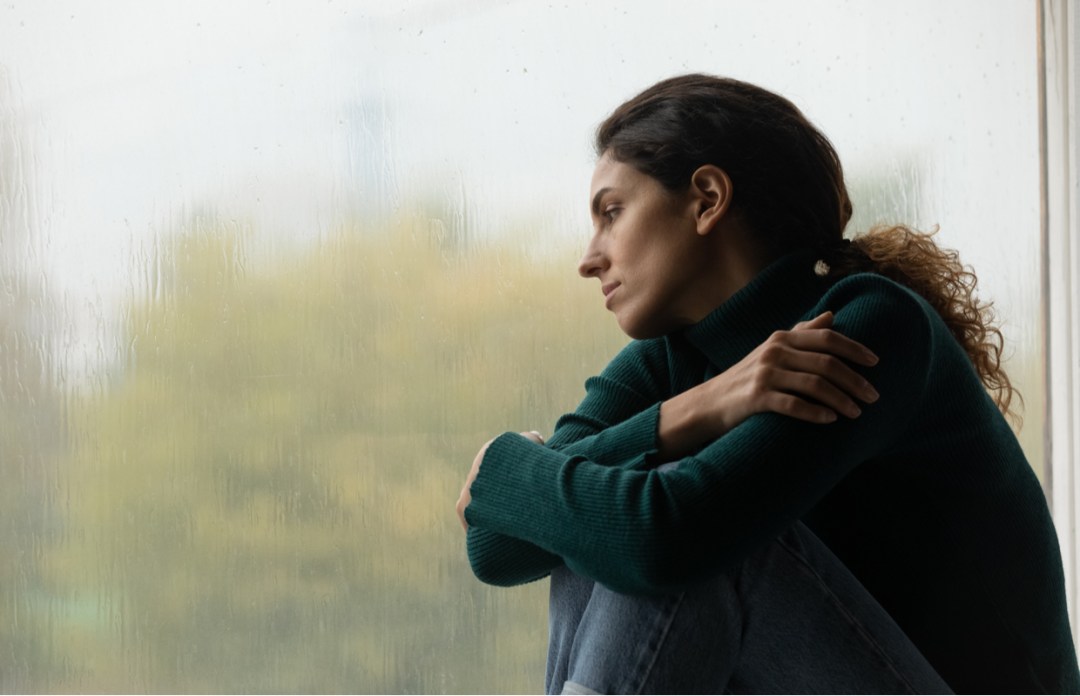
Watching footage a few years ago of bush fires ripping through Australia, many of us felt a wave of emotions barrel over us. Guilt: we should be doing more to help the climate; fear: is it the beginning of the end?; grief: will our collective inaction mean the future generations won’t enjoy the beautiful world the way we have?; anger: why aren’t I doing more? Why isn’t everyone doing more?; and despondency: is there any point anyway?
For many of us, this wave of emotions is a frequent occurrence, triggered by anything that reminds us of the climate crisis – from forgetting to put out the recycling to getting on a plane. And, while this response may seem disproportionate, University of Bath teaching fellow and climate psychology therapist Caroline Hickman reassures us that it is a normal, psychologically healthy reaction to the climate emergency, and she feels these emotions every day.
Hickman, who is involved with the Climate Psychology Alliance, says she is seeing a rise in people of all ages coming to her with eco anxiety, including young women who feel they shouldn’t have children with the world in this state and mothers having nightmares about the fate of their offspring.
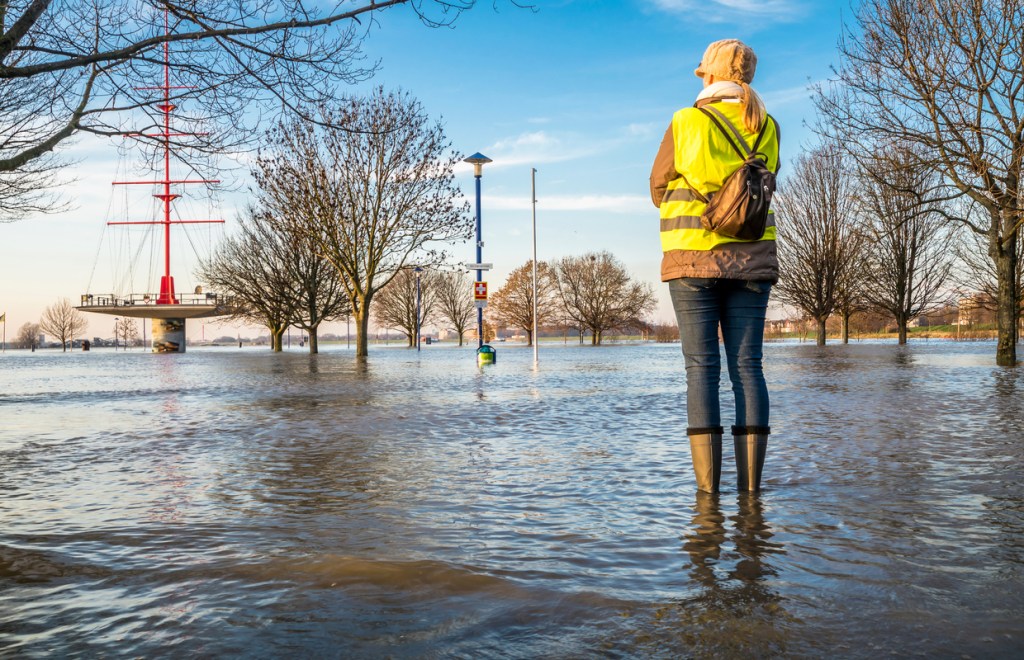
What is eco anxiety?
‘Eco anxiety is not like ordinary anxiety because we cannot reassure ourselves that “this will pass”, or effectively minimise the problem,’ Hickman says. ‘A lot of everyday anxieties can be avoided or managed, but you can’t with this one, so it’s a constant, low-level concern in the back of our minds.’
This is why it can be so tricky to manage eco anxiety, even if you have certain techniques to manage anxiety in other areas of your life. It also explains why all your environmental fears in your subconscious bubble to the surface in everyday life.
How to cope with eco anxiety
Hickman advises that the most important first step to cope with eco anxiety is to make space for, and accept, our feelings. By doing this, we can move through our emotions so they don’t become debilitating.
Hickman does this during her daily ritual of walking her dog: ‘The body needs to move in response to anxiety, not freeze. I allow myself to connect with my tension and complicated feelings. Pushing them away or denying them forces them further into the unconscious which aggravates our fears.’
The weight of personal environmental responsibility
The other thing that can deepen eco anxiety is taking on too much personal responsibility to the point that you collapse into despair. That’s why therapists who specialise in eco anxiety take pains to underline that eco anxiety is not a personal ‘problem’ like some mental health conditions; doing that would be to pathologise a normal human response.
In a session, Hickman puts this into practice by moving between the individual’s view and the larger perspective, including her own: ‘In traditional therapy, when clients talk, I may relate but never say, ‘Oh yes, me too! When I got divorced…’ But I do acknowledge my related fears about the environment and share my concerns. I don’t let them feel alone with it or make it an individual problem. I share, then I show them how I deal with my eco anxiety to help them deal with theirs.’
Not feeling alone with your eco anxiety is the key to learning how to cope. The more you isolate yourself, the more you risk despair. Sharing, and taking action with others who also feel the struggle is the most effective way to quell eco anxiety.
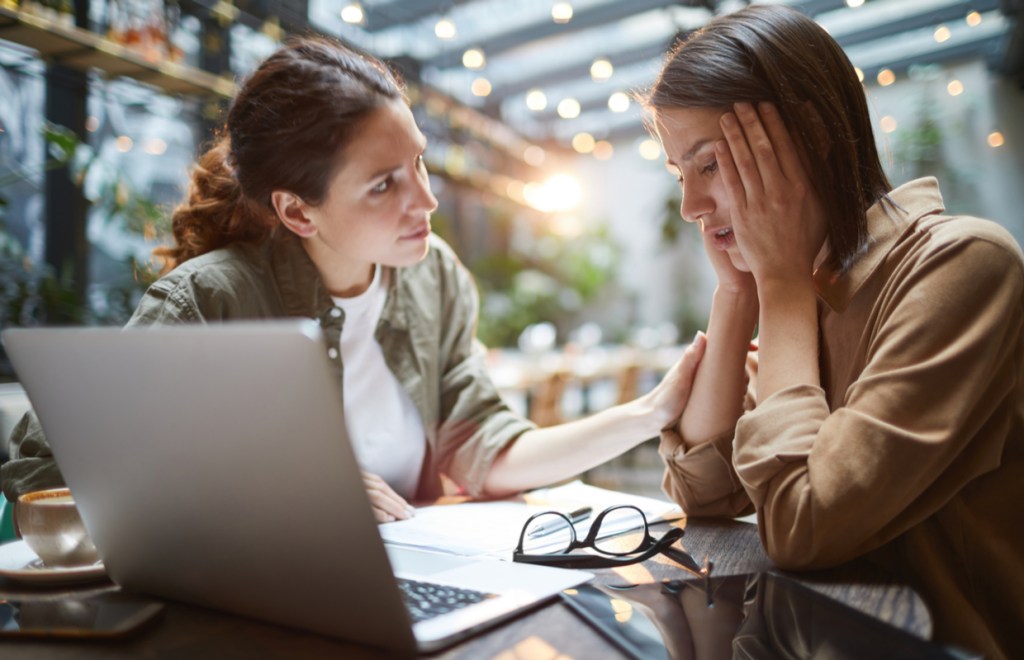
Talk to others about your eco anxiety
As eco anxiety is a shared issue that many of us face, talking to others is increidbly important, so we can comfort one another and find hope together. If you don’t want to talk with loved ones about it, why not join a forum or Facebook group, with likeminded individuals?
After struggling with her own eco anxiety, Suzy Bashford joined the Extinction Rebellion Sisterhood Facebook group, despite not being a member of Extinction Rebellion. As she describes: ‘The discussions feel rich, varied and connective. I’m learning all the time, and I’m surprised by how quickly I’m consoled by the words of people all over the globe experiencing similar feelings.
‘For instance, one member posts about her organisation in the small town of Mahahual, Mexico, which cleans the streets and has raised funds for 300 rubbish bins for homeowners who can’t afford them. “It isn’t much but at least we are doing something and it helps my soul rest,” she says. Conversations get straight to the crux of issues because there is no room for small talk. Rather than depressing, I find it a welcome antidote to selfies and other showy photos on the rest of my feed.’
Support people who are struggling with eco anxiety
Suzy explains how members also post when they struggle with their mental health: ‘One young woman, Bethany Henry, asks for advice on feeling helpless and depressed. Climate change fear has been in her consciousness since she was seven, but it was when she reached 15 that she began to experience periods of sadness, which evolved into anger and then dread. “It is like grieving,” she says. “I go backwards and forwards between emotions. Sometimes, distraction is the only thing that works on days when taking action is impossible for me.”
‘It helps her to connect with like minds and talk about issues to raise awareness. She posts that she is battling to come to terms with the crisis, while worrying that her feelings seem ‘silly’. Support comes thick and fast. “Work your way through the grief in the same way you would if a loved one was diagnosed with a terminal illness,” advises UK poster Theresa. “It’s real grief and many are suffering. The more you talk to others who feel the same, the less all-consuming your grief becomes.”
‘Daisy McCrackin, an artist who lives between Croatia and Holland, says, “Try gardening to ground yourself, Google Earthing [to view the world as a real and powerful planet], read spiritual stuff and be of service. In the second world war, people thought it was the end of the world – we’ve faced this a number of times and, somehow, we carry on. Build your community and be kind.”‘
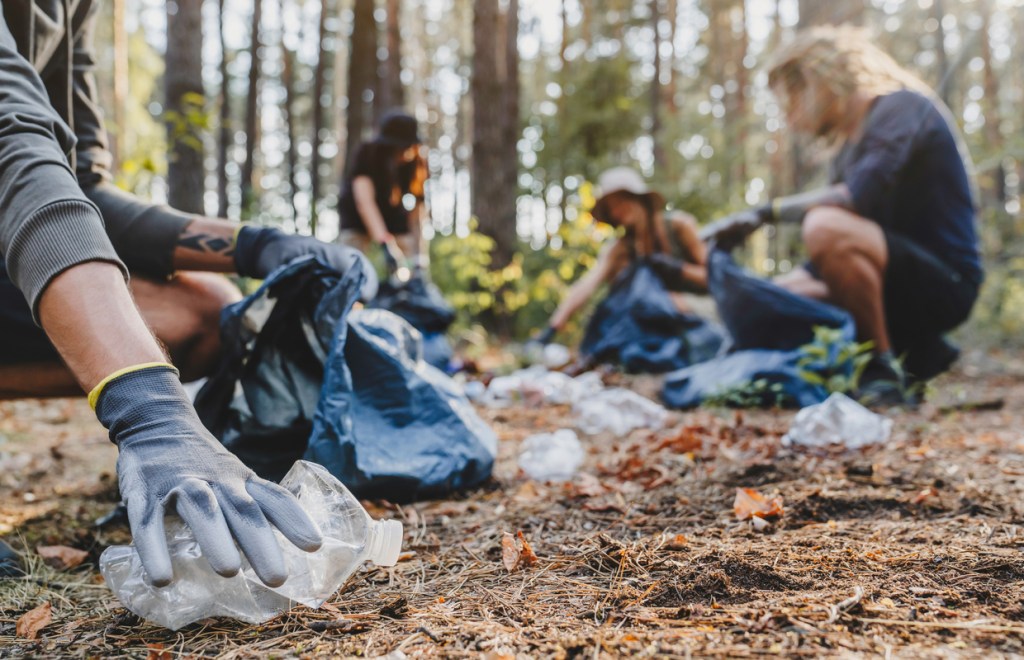
Volunteer for an environmental cause
To quell any guilt you may be feeling, as a result of your eco anxiety, why not try volunteering for an environmental cause. Try the Yoga International Climate Change course, or join a group such as Extinction Rebellion or Climate Fast. While there, focus on the positive action people are taking.
A climate scientist working in conservation, Aylin McNamara, says: ‘There is more positive political action now, and movement in the conservation arena to focus on optimism to tackle psychological overload. Use your passion to do good. Don’t let it overwhelm you,’ she says, adding that we are living in ‘an amazing time’ because people are talking and ‘waking up’ to our reality.
Gaia Maess, a university lecturer, agrees. She’s moved from shock and helplessness to anger and frustration but has ‘started a journey of acceptance’, in a way that is kinder to herself: ‘I felt horrible about flying or buying bottled water if there was no other option, but I decided I’d rather spare my mental energy for collective action and a way forward.’
Live in the moment
Activist Gill Coombs, author of the self-published The Trembling Warrior: A Guide For Reluctant Activists (£7.50), coaches people on how to live more environmentally friendly lives. Alongside facing your fear, she says, it is important to live in the moment. Cultivating joy, particularly in the natural world, builds resilience. ‘I watched a flock of jackdaws riding the wind this morning – living their lives, doing their thing,’ she says.
‘They live permanently with an element of risk that humans insulate themselves from. Yet, despite living on the edge like all wild animals, they live richly and fully, playing in the wind. This crisis could be bringing us more fully alive than we’ve been in a long time.’
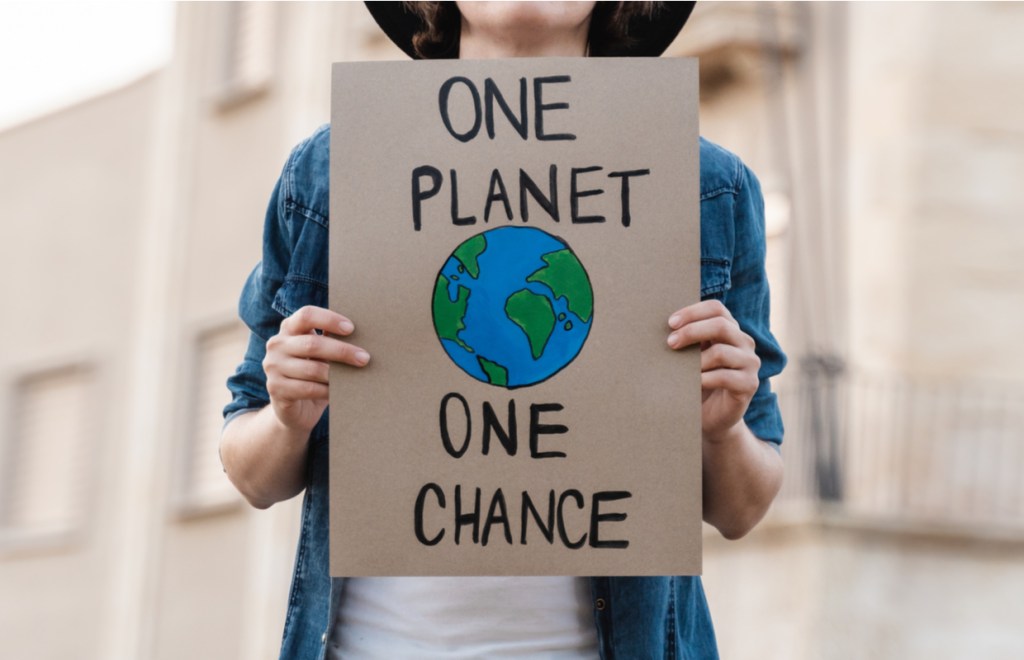
7 tips to cope with eco anxiety
Gill Coombs says action lifts our spirits, gives us hope, connects us and makes a difference. Here’s her starter kit to help you cope with eco anxiety and use your passion to make a positive impact…
- Remember change-maker and writer Mac Macartney’s words: ‘You can do vastly more than you imagine you can.’
- Move through your tension and choose to do something, however small. We can affect what happens to us, evenif we can’t control everything that happens.
- We all have a contribution to make in our own way.
- Creative acts of any form are much more fulfilling than forever holding back.
- Don’t try and do it all, and let go of the mindset that says you should.
- Focus on forms of activism that energise you. Ask yourself: what do I care about passionately? What can I be in service of? Or, what are the skills, qualities, knowledge and experience that make up my unique gift to the cause? What am I willing to try – and what will bring me joy?
- Don’t use action as a strategy for avoiding your fear; honour your pain for the world, then commit to action.
Further reading: best resources for eco anxiety
Active Hope: How To Face The Mess We’re In Without Going Crazy by Joanna Macy (£13.99)
The Trembling Warrior: A Guide For Reluctant Activists, by Gill Coombs (£6.50)
Facing The Climate Emergency by Margaret Klein Salamon (£10.99)
More inspiration: How to live your best life
Words: Suzy Bashford | Images: Shutterstock

